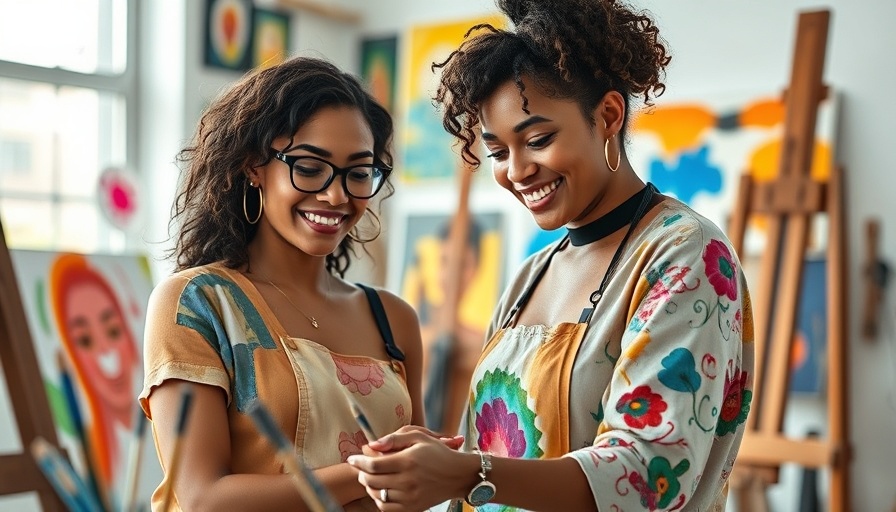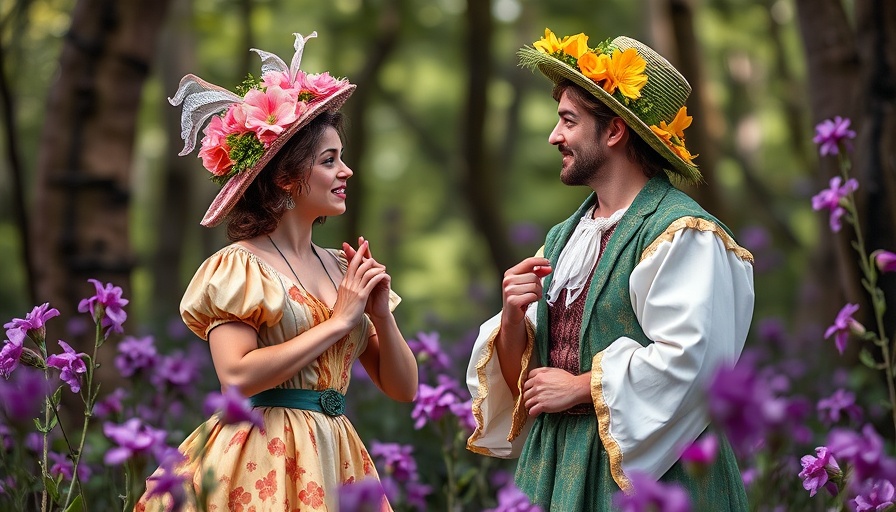
Embracing Inclusivity in the Music Industry
The resonance of music often transcends boundaries, weaving a rich tapestry of cultures, identities, and experiences that connects people. As we observe the significance of Queer Music Month, it's essential to recognize the strides made in creating a more inclusive music industry, particularly for lesbian artists who have historically faced barriers in this arena. Through their unique storytelling and bold authenticity, these artists invite audiences to engage with their experiences, sparking dialogues that encourage understanding and appreciation of diverse perspectives.
The Rise of Lesbian Voices in Music
Throughout the years, lesbian musicians have carved out spaces for themselves within the broader music scene, asserting their identities and challenging societal norms. This surge can be attributed to several factors, including the growth of platforms that promote LGBTQ+ representation and the increasing visibility of lesbian artists in mainstream media. Notable contributions from artists such as Tegan and Sara, Brandi Carlile, and Hayley Kiyoko have not only gained commercial success but have also provided vital role models for younger generations, inspiring them to express their identities openly.
A Historical Context: Shifts in Representation
The evolution of lesbian representation in music reflects broader cultural shifts, with periods of both suppression and flourishing. Historically, lesbian artists faced significant hurdles, often relegated to subgenres or underground scenes where their voices were not as readily acknowledged. However, recent years have seen a marked change, as institutions and organizations within the music industry begin to recognize the importance of representation. Events such as Queer Music Month highlight these shifts and provide a platform for underrepresented voices to speak out.
Importance of Authenticity and Storytelling
Authenticity plays a crucial role in the art of music, especially for lesbian artists. Their narratives often explore complex themes of love, identity, and resilience, reflecting the multifaceted nature of human experience. By weaving personal stories into their music, these artists forge deep connections with listeners—profoundly impacting their understanding of love and identity. This emotional engagement not only enriches the experience of audiences but serves as a vital tool for advocacy and awareness.
Future Trends: The Continuing Push for Equity
Moving forward, the focus on equitable representation in the music industry is paramount. As awareness grows, there is an increasing expectation for labels, producers, and industry stakeholders to support and promote diverse voices, transcending mere tokenism. This movement is fueled by audiences who demand authenticity and representation. Lesbian artists are not just participating in the music scene; they're redefining it. Their contributions challenge traditional narratives, paving the way for future generations to embrace their identities confidently.
Counterarguments: Exploring Diverse Perspectives
While the progress towards inclusivity within the music industry is commendable, there are still challenges that need to be addressed. Some skeptics argue that the mainstream focus on 'diversity' can often lead to the commodification of LGBTQ+ identities, watering down the authentic experiences that these artists represent. Critics stress the need for genuine support rather than performative gestures, emphasizing that true inclusivity must stem from proactive measures that uplift all marginalized voices, not just those that are commercially viable.
 Add Row
Add Row  Add
Add 




Write A Comment